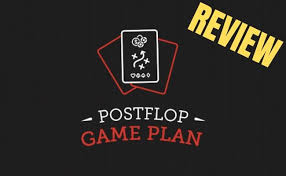Before you even get to “spin” the ball, you can’t begin to think about what’s coming up on the flop. Your future opponents are beginning to figure out what you’re holding based solely on the first few cards you play. Chances are, if these hands don’t look right, you’ll get beat. But if you’re smart about it, you can turn a hand that most people will see as trash, into a hand that you can be extremely profitable with.
Post-flop play is disciple of the same old adage; you can’t beat a game that doesn’t consist of numbers. Has the sound of the word “no” ever frightened you? If you’re hesitant to call a big raise or re-raise, you should probably set a trap and take down the pot pre-flop, or fold to a large bet. However, when you’re looking to defend your big blind, you have a 20% chance of winning the hand on the flop. You also have a good chance of punishing anyone else that considers a continuation bet. Calling these bets, no matter what cards you have, is an easy way to win bets and take down easy money.
The prime time to defense your blind is when you’re in the Dewacasino position and the cut-off or the button position. Once you get your blinds, you’re in trouble from the blinds. Neither the dealer nor the button know you have a strong hand because you never act after they do. You want to make a defense and make them pay for a continuation bet, and end up taking down the pot pre-flop, or suffer the loss of a small bet from a big re-raise.
The first thing you should know is that a sharp bet is normally a sign of strength. Sometimes, the fastest way to win a pot is to take it immediately. Don’t wait for premium cards or a monster hand. Scatter the pot and take down the blinds pre-flop, or suffer the loss of a small bet from a big re-raise.
Before you choose to defend your blind, read up on the players that tend to defend their blind. For example, you can wait for a long time before seeing an ace or a king. This gives you a lot less competition in terms of hitting a large ace or a straight, and you can study the flop to determine the likelihood of the low or high card.
Some players will slow-play the flop, working out the likely strength of their hand and getting into a pot where you can steal the blinds. If you’re in position and the board is not scary, you can call a small bet on the flop, or 2/3 the pot at most.
However, if you’re sitting on a monster (A, K, Q, J or 10) and the flop has a lot of chemistry, like 4, 5, 6, 7, 8, 9 or 10, you should play a bit more aggressively. Often, if people see this type of play, they’ll tighten up and save their chips for powerful draws.
Defending your blind with just a top pair can also work, but it isn’t our goal to give away a free card every time we get trapped in our small blind. Instead, we want to give other players the opportunity to hit a free card against ourAttempted blindsthat give us a strong executed hand.
The Ability to Handle Bluffingand Monster Hands
People love to play defend their blinds, and as a result, you’ll often find that people who love to play defend yours lose their blinds more often then they win them. For this reason, when you’re in the blind, you want to look for a bluff situation.
There are different types of bluffs including strong plays, weak plays, obvious plays, tells and telegraphing plays. tells are the visual clues you have about the other players. By using your own knowledge of your opponents you can make more informed decisions and put your opponents on the defense.
